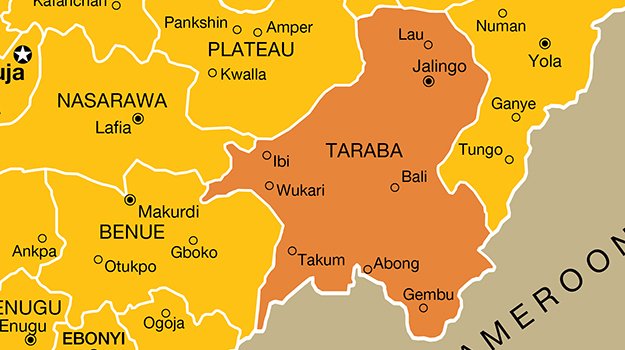The perennial issue of high transport fares during the Christmas and New Year periods again reared its ugly head during the last holidays or breaks in Nigeria, with commuters lamenting the exorbitant costs of traveling to various destinations, despite the reduction in fuel prices, Korede Abdullah, Southwest correspondent of Africa Health Report captures the situation in this report.
Surge in Transport Fares Amidst High Cost of Living

The Yuletide season, which includes Christmas and New Year’s celebrations, is a peak travel period in Nigeria. During this time, many Nigerians travel to their hometowns or other destinations to celebrate with family and friends.
The increased demand for transportation during the Yuletide season often leads to a surge in transport fares. This is because transport operators take advantage of the high demand to increase their prices.
Additionally, the scarcity of vehicles on the roads, increased fuel costs, and other logistical challenges also contribute to the high transport fares.
In Nigeria, the Yuletide season typically sees a significant increase in transport fares, with prices sometimes doubling or even tripling. This presented a significant burden for many Nigerians, particularly those on low incomes.
High Volume of People Traveling
Experts attribute the high fares to a combination of factors, including the high volume of people traveling, greed on the part of transport workers, inflation, and poor government regulations.
The surge in demand for transportation services during the holidays creates a lucrative opportunity for transport operators to hike their fares, often without recourse to regulatory authorities.

Additionally, the prevailing economic conditions, including inflation, have driven up the cost of fuel, vehicle maintenance, and other operational expenses, which are then passed on to commuters.
The lack of effective government regulations to monitor and control transport fares has further exacerbated the problem, leaving commuters at the mercy of transport operators.
Travelers’ Woes
Despite the federal government’s efforts to ease travel during the Yuletide period, offering free train rides and 50% discounts on bus fares, private road transport operators took advantage of travellers.

The government’s initiative, combined with the slash in fuel prices by the Nigerian National Petroleum Company Limited (NNPCL) and Dangote Refinery, was meant to bring relief to travellers.
However, private transport operators capitalized on the high demand for travel during the holiday season, charging exorbitant fares to unsuspecting travellers. This development left many travellers frustrated and disappointed, as they were forced to pay inflated prices for their journeys.
The situation has raised concerns about the lack of transparency and accountability in the transportation sector. Analysts said the failure of transport operators to reflect the decrease in fuel costs in their fares suggests that the industry is driven more by greed than by market forces.
Mr Adeniyi Adeleye, CEO of Ade-Lee Logistics, in an interview with this newspaper said that a mechanism should be put in place by government to regulate the exorbitant transport fares charged by Shylock drivers especially during the Yuletide season.
“The absence of effective regulatory mechanisms to monitor and control transport fares has created an environment where operators can arbitrarily set prices, leaving commuters to bear the brunt.”, Adeleye said.
Post-Holiday Transport Fares Remain Sky-High
Investigations by Africa Health Report have revealed that two weeks after the Christmas and New Year celebrations, transport fares in Nigeria remain exorbitantly high, causing hardship for commuters who are still feeling the pinch of the festive season’s increased costs.
According to a park official in Lagos who simply put his name as Chima, “The increase in fare is due to the high cost of diesel and the scarcity of the product.”
This has led to a significant hike in transport fares, with a trip from Abuja to Aba by car now costing ₦50,000, up from ₦35,000. Similarly, traveling by Hummer bus from Abuja now costs between ₦35,000 and ₦60,000, a significant increase from the previous fare of ₦25,000.
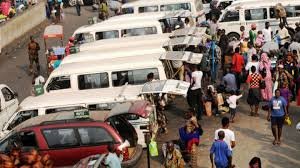

Another park attendant attributed the high fares to the increased demand for travel during the holiday season, which has yet to subside. “Many people are still traveling, and the demand is high, so the transporters have increased their fares,” he explained.
As a result, passengers traveling from Lagos to Owerri are now paying between ₦53,000 and ₦55,000, while those traveling to Abuja by night bus are paying between ₦45,500 and ₦57,000.
Nigerians Still Feel the Pinch
The cost of landing petrol in Nigeria has decreased by 20.34% over the past three months, dropping to N971.57 per liter. This reduction is attributed to global market fluctuations and supply chain factors.
Dangote Petroleum Refinery reduced the price of its Premium Motor Spirit (PMS) from N990/liter to N970/liter for marketers. Also the Independent Petroleum Marketers Association of Nigeria (IPMAN) announced that its members would reduce petrol prices by N50 per liter when purchasing directly from Dangote Refinery.
Additionally, the Nigerian National Petroleum Company Limited (NNPC) reduced the pump price of petrol from N1,020 to N965 in Abuja, and to N925 per liter in Lagos.
A Drop in the Ocean
Despite the reductions, Nigerians are still grappling with a high cost of living. The prices of food items, medications, transport fares, and other essential commodities and services remain elevated, leaving many Nigerians to continue feeling the economic pinch.
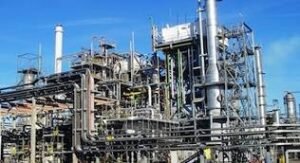
The reduction in fuel prices has yet to translate into tangible relief for the average Nigerian.
Nigerians are unimpressed with the 20.34% reduction in fuel prices, citing that it’s merely a drop in the bucket. “This reduction means nothing to me,” says Lagos resident, Mrs. Oyinlola.
“The prices of food, transportation, and other essential commodities are still high, so what’s the point of reducing fuel prices by such a small margin?” she asks.
Many Nigerians share her sentiment, arguing that the government needs to do more to alleviate the economic hardship caused by the removal of fuel subsidies by President Bola Tinubu in 2023.
According to those who spoke with Africa Health Report (AHR), the reality on the ground is that the 20.34% reduction is too little, too late.
“I still pay the same amount for transportation, and the prices of goods in the market haven’t changed,” says Abeokuta resident, Mr. Lanre Alabi.
“The government needs to take more drastic measures to reduce the suffering of the people.”, he added.
Nigerians are calling on the government to take a more holistic approach to addressing the economic challenges facing the country, rather than just tinkering with fuel prices.
As one Nigerian aptly put it, “The government needs to put more money in our pockets, not just reduce the price of fuel by a few naira.”
Until then, the 20.34% reduction in fuel prices will be seen as nothing more than a token gesture, rather than a genuine attempt to alleviate the economic hardship facing Nigerians.
Labour Unions Under Fire for Being Docile
Nigeria’s labor unions, including the Nigeria Labour Congress (NLC) and the Trade Union Congress (TUC), have come under fire for their perceived inability to effectively fight for the rights of Nigerians and alleviate the country’s economic hardship.
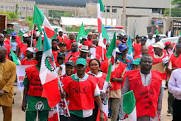
Despite their mandate to protect workers’ rights and promote fair labour practices, many Nigerians feel that the unions have not done enough to address the rising cost of living and high inflation.
The unions’ recent efforts have been criticized for being more talk than action.
Many Nigerians are calling for more concrete actions from the unions, such as organizing strikes, protests, and negotiations with the government to push for policies that benefit workers and the general population.
“I’m disappointed in the NLC and TUC. They’re supposed to be the voice of the people, but they’ve been too quiet on the issues that matter.
“Where’s the outrage over the rising cost of living, especially on the high transport fares. Where’s the fight for better wages?” – Emmanuel Olukayode, a Lagos-based civil servant expressed his frustration.

Another responder, Olamide Kazeem has this to say about the Ineffectiveness of the labour unions, “I’ve lost count of how many times the NLC and TUC have promised to take action on our behalf, only to do nothing. They’re all talk and no action. We need unions that will truly fight for us, not just pay lip service.”
“The current leadership of the labour unions is weak and ineffective. They’re too compromised to take on the government and fight for the rights of workers. We need new leaders who are willing to take a stand and fight for what’s right.”
Mr Kazeem said it’s time for the labour unions to” wake up and smell the coffee.” According to him, “The people are suffering, and we need action, not words.”
Government, Transport Operators Urged to Reduce Transport Fares
As the high cost of transportation and other essential commodities continues to burden Nigerians, calls are growing for the government and transport operators to take concrete steps to reduce transport fares.
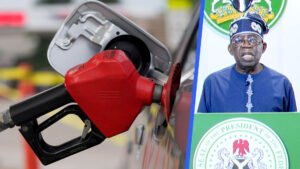
Commuters and advocacy groups are urging the government to implement policies that will make transportation more affordable, while also calling on transport operators to review their pricing structures.
“The high cost of transportation is a major burden on Nigerians, and it’s imperative that the government and transport operators take action to reduce fares,” said Comrade Olusanya Joseph, Spokesperson for an advocacy group.
The group is advocating for measures such as subsidized transportation costs, improved fuel efficiency, and better regulation of transport operators to ensure fair pricing and lease of lives for all Nigerians.


